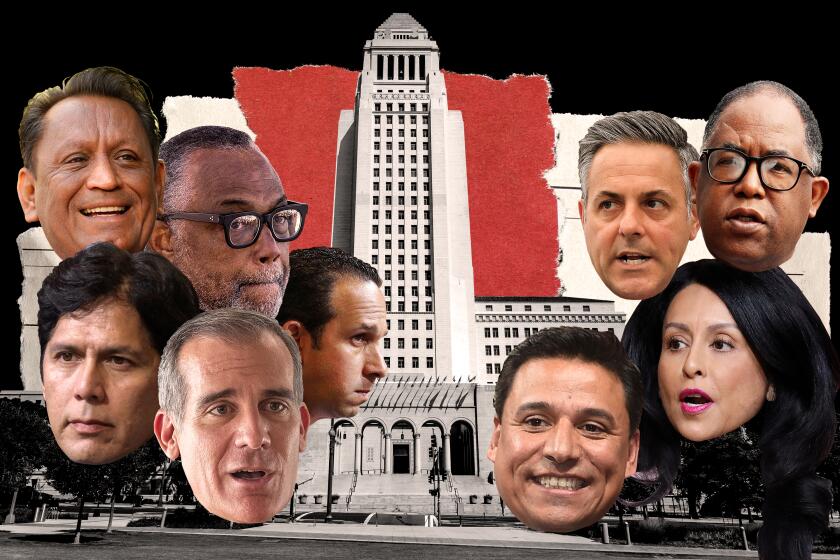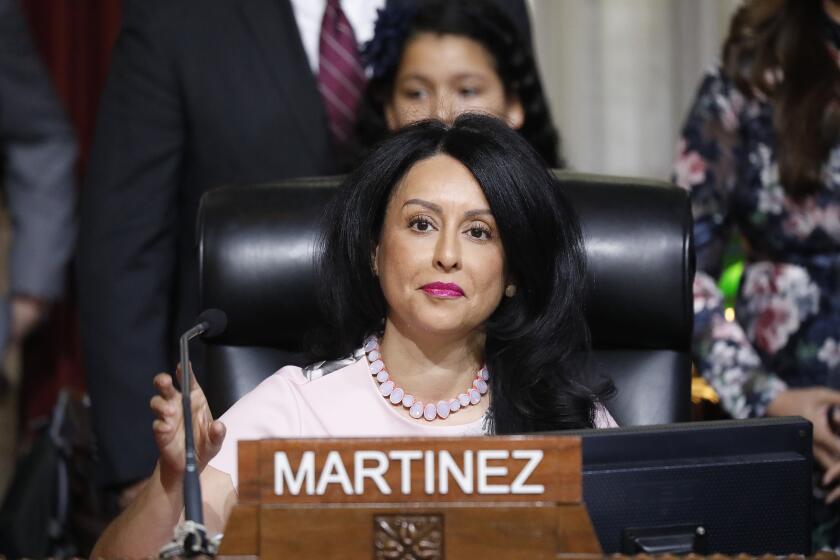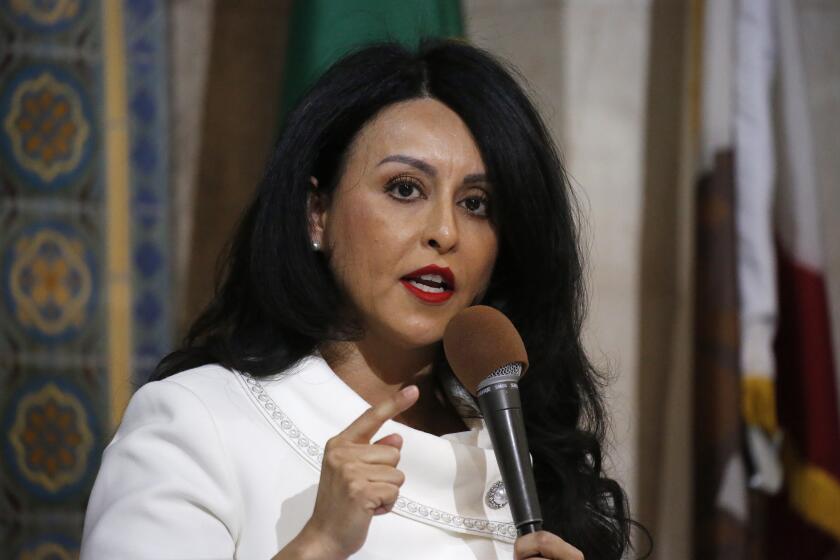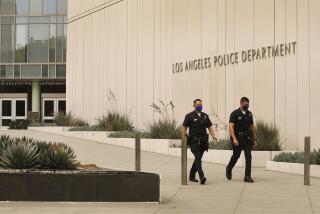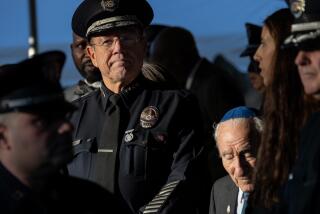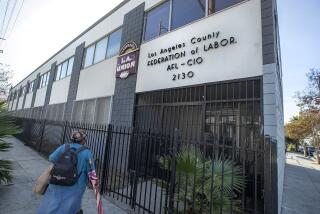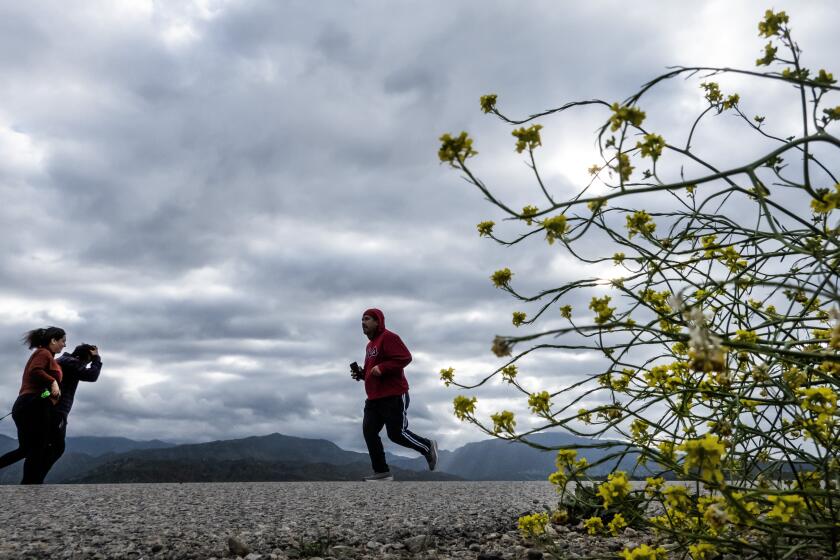Union calls leak of racist recordings illegal, but LAPD has not been asked to find culprit
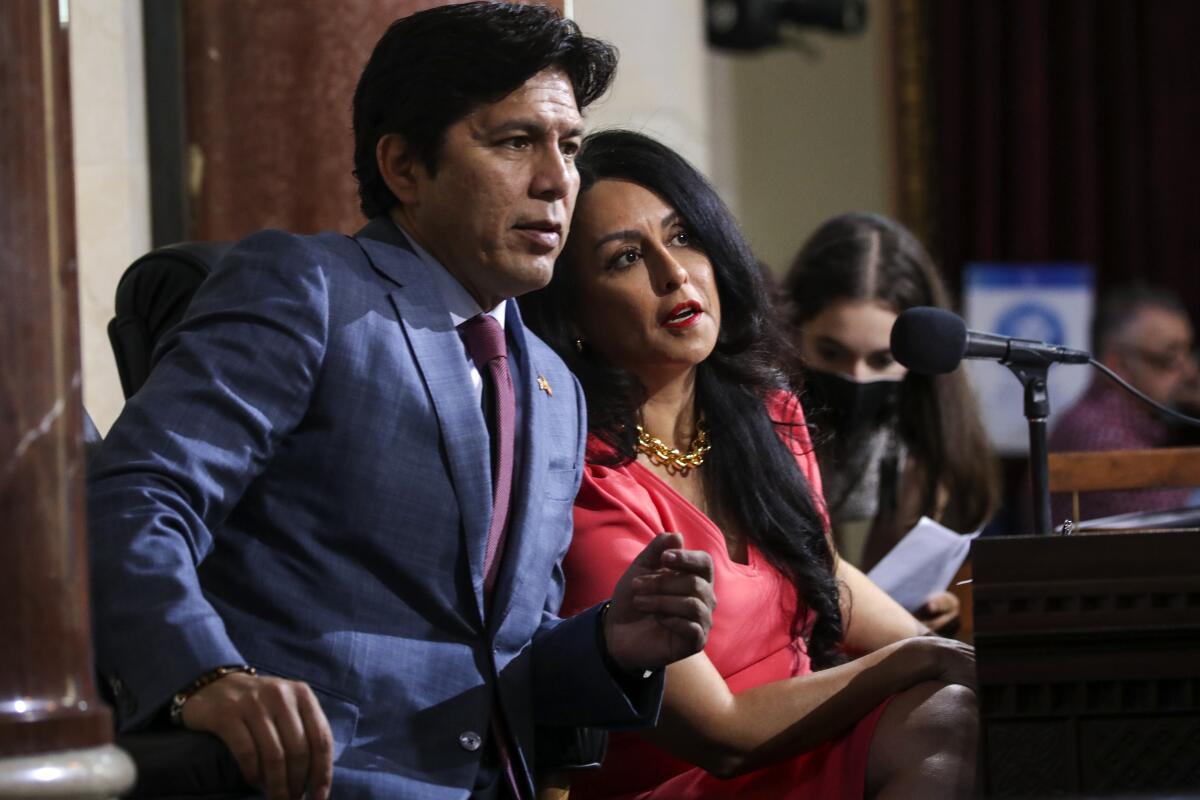
Even though Los Angeles labor officials have called the leak of racist recordings involving three L.A. City Councilmembers a serious crime, the Los Angeles Police Department is not investigating who recorded and posted the clips because no one has filed a police report.
The recordings took place at the offices of the Los Angeles County Federation of Labor, which has called the leak “illegal” and vowed to have those involved prosecuted. The union attempted to block the Los Angeles Times from publishing details of the recordings, saying they were obtained illegally. The Times refused.
More than a week after the leak, it is still unclear how the recordings were made. Recording conversations without a person’s consent is illegal in California, with rare exceptions.
LAPD Capt. Kelly Muniz said the department has not received a call from the labor group or any other agency asking that detectives probe the matter, so the LAPD is not investigating.
With Los Angeles still reeling from a leak revealing prominent elected officials making bigoted and racist remarks, much about the recording remains a mystery: Who made it? And how? Who leaked it? And why?
The only current investigation is one by Atty. Gen. Rob Bonta, who is looking into the Los Angeles redistricting process that took place last fall, with Bonta saying an inquiry is needed to “restore confidence” in drawing the city’s 15 council districts. That process was underway during the recorded discussions, in which then-council President Nury Martinez is heard making racist remarks while talking to former labor leader Ron Herrera and Councilmembers Gil Cedillo and Kevin de León about redistricting.
As the scandal began to unfold, a “serious security and privacy breach” took place at the offices of the Federation of Labor involving “illegal” recordings of “many private and confidential conversations in private offices and conference rooms,” the federation told its member union.
While the recordings were made at the federation offices because so many people had access to them, it is unclear whether someone who works there recorded the conversations.
“It is not nor has it ever been the policy of the [federation] to record meetings,” interim President Thom Davis said in a statement.
The Los Angeles political world is no stranger to scandal. In fact, there have been so many it can be hard to keep them straight.
A spokeswoman for the Federation of Labor acknowledged Monday that it had not contacted the LAPD or the Los Angeles County district attorney’s office to investigate, nor has it heard from a police agency about the leak.
Martinez’s remarks came during an October 2021 meeting at the federation’s offices. She and the other Latino leaders present were seemingly unaware they were being recorded as Martinez said white Councilman Mike Bonin handled his young Black son as though he were an “accessory” and described the boy as a “changuito,” or like “a monkey.”
Martinez also mocked Oaxacans and said “F— that guy … He’s with the Blacks” while speaking about Los Angeles County Dist. Atty. George Gascón. The three also made racist remarks about Jewish and Armenian residents.
A leaked recording of L.A. City Council members and a labor official includes racist remarks. Council President Nury Martinez apologizes; Councilmember Kevin de León expresses regret.
With the departure of Herrera, the Federation of Labor is concentrating on rebuilding trust both within the organization and with its affiliates, according to Davis, its interim president.
The first mention of the surreptitious recordings came on Sept. 19. An anonymous user created a Reddit account called Honest-Finding-1581 and posted a screed in the popular r/LosAngeles forum titled “LA County Federation of Labor” that mentioned the audio.
“When you actually hear it, it’s unbelievable,” the poster wrote.
Jessica Levinson, a Loyola Law School professor and former president of the Los Angeles Ethics Commission, said the person who posted the recordings to Reddit might not be the one who made the recordings. “There is only legal liability for the person who did the recording, not the person who disseminated the recording,” she said.
Susan Seager, an adjunct professor at UC Irvine School of Law and a longtime media lawyer, said the act of taping the conversation could be a violation of California law forbidding secretly recording people who have a reasonable expectation of privacy. A civil lawsuit could be filed against the person who recorded the conversation over that potential violation, or it “could be prosecuted criminally, which is extremely rare.”
If the person who posted the recording is not the one who recorded it, “they would arguably have the same 1st Amendment protection to post it as [the media] because it’s of public concern,” Seager said. She cited the U.S. Supreme Court’s 2001 decision in Bartnicki vs. Vopper, which found that the disclosure by the press of illegally intercepted communications regarding a matter of sufficient public concern is protected under the 1st Amendment.
“You have the right to kind of override some people’s privacy interests if the issue concerns a matter that’s important to the public,” Seager said. “In this case, they were also talking about redistricting.”
Audio of Councilmembers Nury Martinez, Kevin de León and Gil Cedillo speaking with labor leader Ron Herrera quickly became a new and incendiary issue in the Nov. 8 election.
However, she noted that “there have been cases where people have recorded people illegally and lost. … There are cases where people have been held responsible under civil lawsuits and some limited criminal cases.”
The use of search warrants to try to identify the person behind the recordings could also allow law enforcement to obtain other Federation of Labor communications related to the recordings, including texts, emails and social media discussions. Similar warrants could be sought for other people who were in the room during the conversation between Martinez, De León and Cedillo to determine whether their phones or other devices played a role in the recordings.
It’s not entirely clear what would happen if a person or entity attempted to compel Reddit to hand over the email address or other identifying information about the person who posted the recording. One way that could happen would require someone filing a civil lawsuit against an unnamed “Doe” defendant, then filing to subpoena Reddit, Seager said
From there, Reddit’s specific policies — which Seager said she has not reviewed — on responding to subpoenas would come into play.
“Some websites will not even notify the user and just give up the [information] to whoever subpoenas them,” she said. “And some will notify the poster — the user — and say, ‘We got a subpoena and you have the right to come in and try to quash it.’ And I suppose some websites might just try to quash it on their own.”
Another way a subpoena could emerge would be if criminal charges were brought and the case went before a grand jury.
“If it’s a grand jury subpoena, it’s usually easier for the prosecution to get something like that and websites will turn it over without notifying the person,” Seager said.
Karen Gullo, a spokeswoman for the Electronic Frontier Foundation, said there are too many open questions — including about the anonymous poster’s actions and the circumstances under which the recording was produced — to answer specific questions about what could happen.
But the foundation said in a statement that “the First Amendment shields the identity of anonymous speakers who engage in lawful speech.” Anonymity, the San Francisco nonprofit advocacy group added, “is particularly critical for people like whistleblowers and activists who need to speak out openly without fear of retribution.”
More to Read
Start your day right
Sign up for Essential California for news, features and recommendations from the L.A. Times and beyond in your inbox six days a week.
You may occasionally receive promotional content from the Los Angeles Times.

